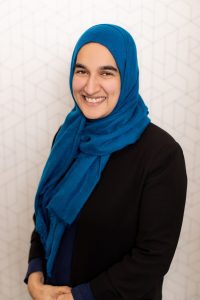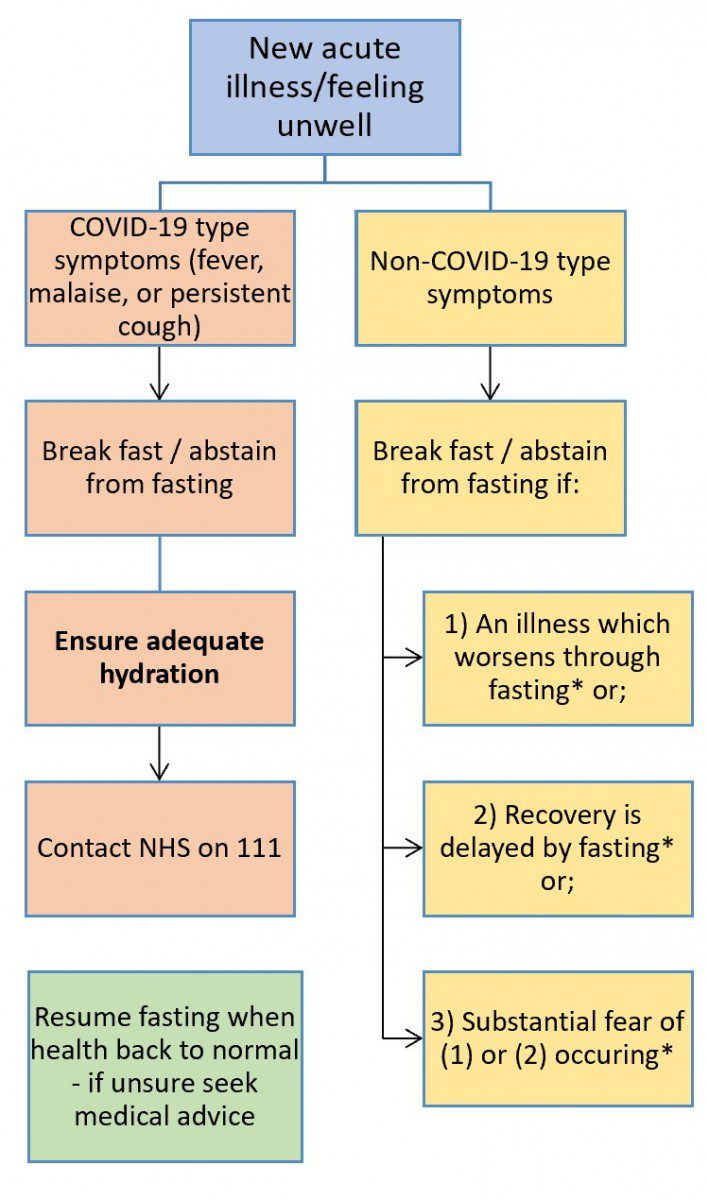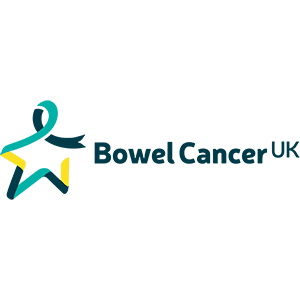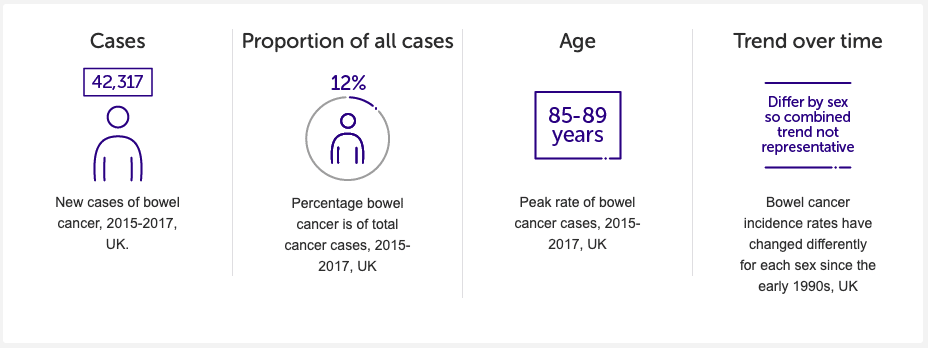Innovative Trials are working to ensure our diverse population is adequately represented within medical research. Whether it is wanting to see more people from underrepresented communities choosing science as a career and pushing for greater patient diversity in clinical trials or focusing on what we are doing internally to celebrate and promote equality and diversity. Throughout 2021, we have pledged to share our education and experiences with our clients and colleagues, to ensure inclusivity across the board. Each month we will be releasing communications in line with national and international awareness campaigns. So far we have explored Women’s Health in our January Awareness blog and diversity in Cancer, Heart Disease and Scleroderma in our February Awareness blog. Last month we looked at Ovarian Cancer and Prostate Cancer as part of our March Awareness blog. In Part One of this month’s awareness blog, our Patient Recruitment Associate, Kashif Nasar, helped raise awareness of Autism as part of Autism Acceptance Month. In Part Two of our April Awareness blog, our colleague Chloe Galloway, will be exploring Ramadan and Bowel Cancer Awareness Month, and the effects of fasting on clinical trials. Monday 12th April marks the first day of Ramadan 2021, following the sight of the moon over Mecca, and thus a moveable feast each year [1]. Ramadan is an Islamic celebration, where Muslims across the world dedicate 29-30 days to daily fasting and devote a particular focus to prayer, purification and charitable acts. Ramadan is considered the holiest month in the Islamic calendar, as it is the month in which the Qur’an was first revealed. Allah decided that this month should be singled out as being special in order to commemorate the Qur’an. [2] Most healthy Muslims are expected to fast from sunrise to sunset during Ramadan, as it is seen as a way to purify both spiritually and physically – by detaching from material things and reminding us that there are others less fortunate than us. Fasting (sawm), is one of the five key pillars underpinning the Islamic faith. The others are prayer (salat), giving a percentage of your salary to charity (zakat), making the Hajj pilgrimage to Mecca and, a belief in the Muslim faith (shahadah). [3] As part of our company’s learning, our Equality & Diversity Committee held a Q&A session on Ramadan with our Patient Recruitment Associate, Razika Azim. This was an enlightening session, rolled out as a recorded session to the wider company. As a company we were able to increase our knowledge around Ramadan and Islamic traditions. Here are a few things that were shared during the session: “[I teach my children that Ramadan is].. not just about fasting, it’s about the whole idea of sharing and caring and being kind.” “It’s so easy in today’s day and age to think of Islam as a repressive religion, and I want to show them that it’s not about that, it’s about being a good human being, having fun and understanding things through fun ways” “[Fasting during Ramadan] gives you a good detox and generally makes you feel a lot healthier by the end of the month” “If you eat something and you don’t realise, then that’s a sign from God that he wants you to have that.. it’s something you needed and that’s fine’ As Ramadan starts, we want to explore the effects of fasting in clinical trials. Is there a decrease in Muslim representation during the month of Ramadan? With many of the Islamic population fasting across the world, they may not want, or be able, to participate in clinical trials. Those with chronic health conditions may be exempt from fasting, so may still be able to participate; but what about clinical trials recruiting for healthy participants or those with minor illnesses who are still able to fast? One study explored the effects of Ramadan fasting on clinical and biochemical markers among hemodialysis patients. The study findings suggested that Ramadan fasting (fully or partially) is tolerable by hemodialysis patients and is not associated with important clinical complications. However, these patients should be made aware of the potential risk of fluid overload and hyperkalemia, if they decide to fast during Ramadan. [4] Another study looked at fasting among Muslim cancer patients during the holy month of Ramadan, including 7% of Bowel Cancer patients. While 40% of patients did not fast at all during Ramadan, 36% and 24% were partial and complete fasters, respectively. Female patients, those with performance status (PS) 0 to 1, those whose disease was a non-metastatic solid tumor, and those receiving non-intravenous chemotherapy as outpatients were more likely to be fasting than their corresponding counterparts. Being a female, having PS 0 to 1, and receiving treatment as an outpatient were the only factors that were significant in multivariate analysis. Only 46% of patients sought the treating oncologist advice on whether they could fast. This study found that most cancer patients fast during Ramadan, but only half of them discuss the issue with their oncologists. [5] Similarly to last year, COVID-19 may affect those fasting within Ramadan. A recent study looks at the safety for patients with COVID-19 to fast in Ramadan, and includes the below diagram to offer guidance to those displaying symptoms, wishing to participate in Ramadan [6] As well as Ramadan, April is also Bowel Cancer Awareness Month, so we want to spread awareness on bowel cancer as part of this. Bowel cancer refers to cancer in any part of the bowel from colon to rectum, and can also be referred to as colorectal cancer. 42% of adults living in the UK are not aware of any symptoms of bowel cancer – the UK’s second biggest cancer killer. [7] One of the main bowel cancer symptoms is bleeding from your bottom or blood in your stools, but only a third of people are aware of it (32%). The other four main symptoms, experienced by many who go on to be diagnosed with the disease, have an alarmingly low rate of awareness: Age-standardised rates*: *Ranges are given because of the analysis methodology used to account for missing and unknown data. For bowel cancer, 146,495 cases were identified; 17% had no known ethnicity. [8] Innovative Trials supported a Phase 3 Metastatic Colorectal Cancer study, in 50 sites across 3 countries. This was a 2 month rescue pilot study, where we were able to demonstrate that many of the sites had potential to enrol, thus averting a study closure. A key achievement for this study was a 113% increase in average patients randomised at CEM supported enrolling sites. As a clinical trial patient recruitment company, and as an inclusive employer, it is important for us to help raise awareness in several therapeutic areas; and explore links with diverse populations, in order to increase inclusivity and access to clinical trials across the world. As well as information referenced above (highlighted in references below), further studies around links to Ramadan, fasting and bowel cancer in clinical trials can be found here: Equality, Diversity and Inclusion continues to be high on our agenda. We are working behind the scenes to push this forward. Keep your eyes peeled for more. Find out how we’re working with clients to ensure greater patient diversity in clinical trials. Ramadan | Bowel Cancer Awareness Month
Ramadan
Q&A with Razika Azim

Fasting in Clinical Trials
With almost 1 in 4 of the world’s population practicing Islam, there may be a serious misrepresentation in clinical trials during Ramadan.

Bowel Cancer Awareness Month
Symptoms

Incidence & Diversity

Our Experience
Conclusions
Further Reading
References
